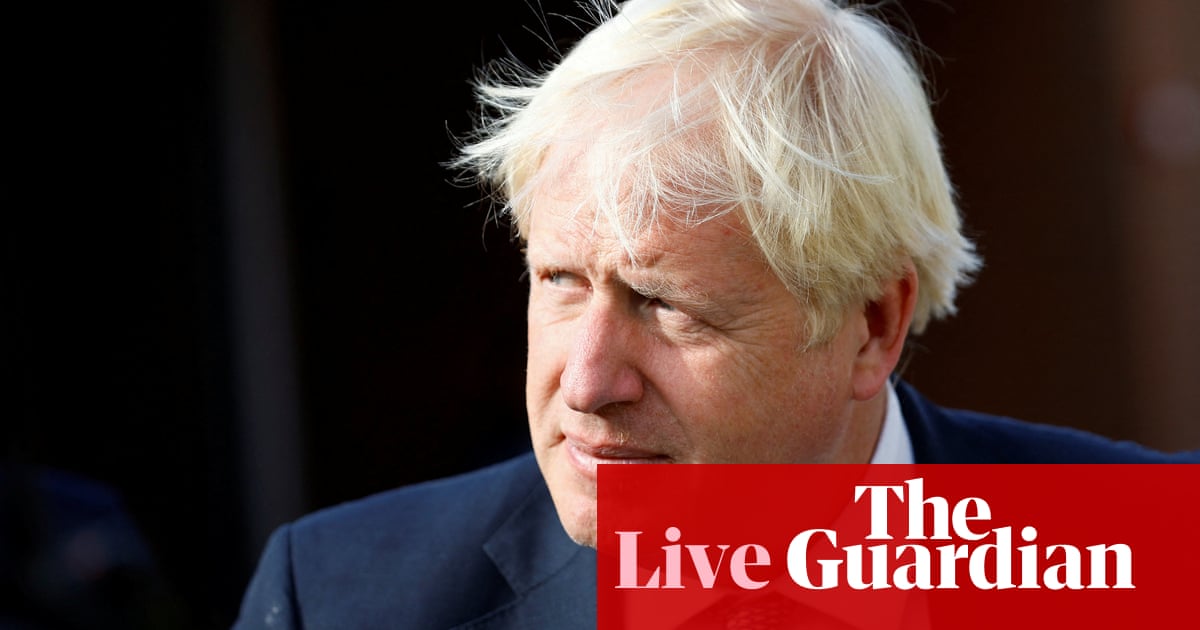
Boris Johnson’s plan to set up local teams of “Covid marshals” to enforce coronavirus rules preventing large groups of people gathering in private and public spaces has been criticised as confusing and shambolic by local authorities.
Councils in England, which the government said would be expected to employ teams of marshals at their own expense, said they had received no warning from government about the announcement, and had been given little detail since about what was expected of them.
“Bearing in mind the government is introducing the new rules from Monday, they have given us no indication of additional resources, no staff, no powers of enforcement and no time to prepare people for the roles or carry out security checks. It is serial incompetence,” said Nick Forbes, the leader of Newcastle city council.
“We have been given no idea of how many marshals will be needed, how they will be deployed, or how incidents will be reported. Are marshals expected to knock on people’s doors or enter people’s gardens to break up gatherings of more than six people? Are marshals being asked to break up illegal dinner parties?”
Forbes said there was bafflement and frustration across political lines in local government at the lack of warning and dearth of guidance accompanying the announcement. “Yet again, it is government by press release,” he said.
Johnson told a press conference on Wednesday that the deployment of marshals would “boost the local enforcement capacity” as part of an announcement of new rules designed to slow the spread of coronavirus by cracking down on gatherings of more than six people.
People breaching the new restrictions could be fined £100, which will double with every subsequent offence up to £3,200, although it is not clear whether Covid marshals would be able to issue a criminal fine, which would normally be a police responsibility.
The Ministry of Housing, Communities and Local Government (MHCLG) said councils could draw on existing staff or volunteers to fill the roles. The marshals would wear hi-vis jackets to support members of the public in one-way systems, prevent mixing between groups, and clean touch points in public places.
An MHCLG spokesperson said: “We are encouraging the introduction of Covid-secure marshals to help support our high streets and public spaces, making sure that people feel safe to enjoy them. Some areas of the country have already introduced marshals to support the public in following the guidelines in a friendly way and we will be working with local authorities to see where else they are needed.”
The ministry said that further details would be published “in due course”, although it added that councils were best placed to “determine the model of deployment and responsibilities of marshals in their areas”. It suggested that versions of Covid marshals already operated in Leeds and in various towns in Cornwall.
Leeds city council said its initiative, which involved the deployment in the city centre of 12 city ambassadors and six night marshals for a four-week period in July, when lockdown restrictions were eased, was very different in scope and intention to what the government appeared to envisage for Covid marshals.
Many councils have been deploying environmental health and trading standards staff to informally advise the public and businesses about social distancing rules in shops, markets and in parks. But there is a national shortage of such workers, and environmental health departments have experienced some of the worst cuts under austerity.
“The challenge of starting this policy from scratch, at a few days’ notice, with no money and no guidance, is not something it is possible for councils to do,” said Richard Watts, leader of Islington borough council in London.
Steve Reed, the shadow communities and local government secretary, said: “Councils have gone above and beyond to protect communities during the pandemic, but they are being continually hung out to dry by an incompetent government, chasing headlines.
“Yet again this is government by press release, with ministers giving no guidance about how this will be delivered or funded. The British people are paying the price for the government’s failures. It needs to get a grip and work constructively with councils if we are to get through this crisis.”












